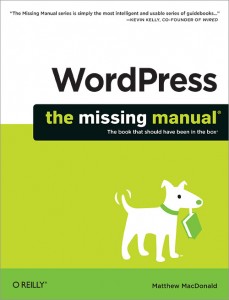### Creates H3
(this is a sticky post)
H4 Looks Like This
In his 2011 book, Joomla! 1.6: A User’s Guide – Building a Successful Joomla! Powered Website, Barrie North describes “what is a blog?” Here is my summary of his topic:
What IS a blog?
* communication medium: typically frequent brief posts about a particular subject
* unique communication style: honest first-person voice
frequent posting: daily? weekly?
* usually posts are brief, only introductory text is shown on the main page, along with a “read more link
* make regular posts to build a loyal readership that will have consistent expectations about your blog content
Carol’s comment: who has time to regularly read anyone’s blog? Even as much as I value Jacob Nielsen’s “Alert Box,” I only visit when I have time to read, and first I search through his recent topic lists to choose what to read. Or I read someone’s blog post when it turns up in Google search results.
Which platform? Barrie says pick one that’s extensible to other types of web pages. In 2011, when Barrie North published his book, WordPress was (probably?) not so extensible. Hence Joomla was the choice. Now (in 2015) WordPress has evolved into a more general website platform.
How to order posts?



